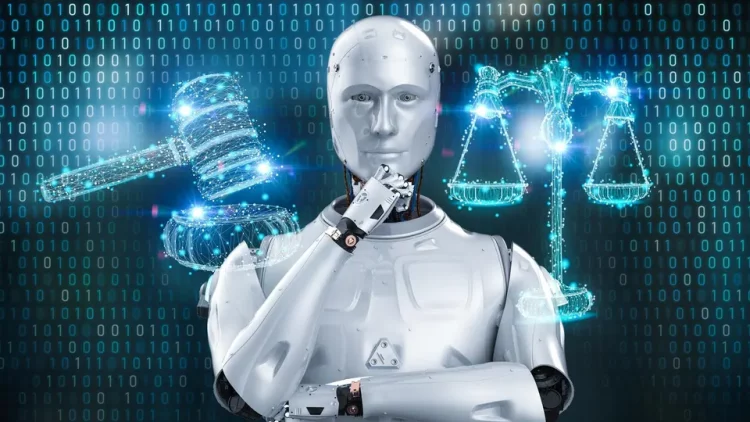Introduction: The Importance of Ethics in AI Development
As artificial intelligence (AI) continues to advance, its impact on society grows ever more significant, prompting critical conversations about its ethical implications. From self-driving cars and medical diagnostics to facial recognition and automated decision-making systems, AI is becoming deeply embedded in our daily lives. However, this rapid integration raises important questions: How do we ensure AI is developed and used responsibly? What are the potential consequences of AI systems making decisions without human oversight?
AI systems are designed to make processes more efficient, accurate, and scalable, but their capabilities also introduce new ethical challenges. With AI models influencing decision-making in healthcare, finance, law enforcement, and beyond, ensuring that these technologies are developed with ethical considerations in mind is paramount. This article explores the key moral concerns surrounding AI and how developers, policymakers, and society at large are navigating these issues.
Bias in AI Models: How AI Systems Can Inherit Bias and Its Consequences
One of the most significant ethical issues surrounding AI is the presence of bias in machine learning models. AI systems are trained on large datasets, and these datasets often reflect existing societal biases. Whether due to historical inequalities or skewed data sources, these biases can be learned by AI models and perpetuated in their predictions and decisions.
For example, in the criminal justice system, predictive algorithms designed to assess recidivism risk may inherit biases related to race, gender, or socioeconomic status, leading to unfair outcomes for marginalized groups. In hiring, AI-powered recruitment tools may favor certain demographics over others based on biased training data. The consequences of biased AI models can be profound, leading to discrimination, injustice, and inequality.
Recognizing and mitigating bias is a critical task for AI developers and researchers. Efforts to address bias include diversifying training data, applying fairness-aware algorithms, and developing techniques to regularly audit AI systems for unintended biases. However, achieving true fairness in AI remains a challenging and ongoing process.
Transparency and Accountability: Why Understanding AI Decisions Is Crucial for Ethical Use
Transparency and accountability are fundamental ethical principles in AI development. As AI systems become more complex, they often function as “black boxes,” making decisions based on data patterns that are difficult for humans to understand. This lack of transparency can be problematic, particularly in high-stakes domains such as healthcare or criminal justice, where decisions can significantly impact people’s lives.
For instance, if an AI model is used to determine eligibility for a loan or to assess whether a patient will develop a certain condition, it is vital that stakeholders—including the people affected by the decision—can understand the reasoning behind the model’s conclusions. Without transparency, it becomes impossible to trust AI systems, and accountability for errors or injustices becomes blurred.
Explainability and interpretability are two key concepts that are critical to improving transparency in AI. Explainable AI (XAI) aims to make machine learning models more understandable to humans by providing insights into how and why decisions are made. By developing AI systems that are transparent and explainable, developers can ensure that these technologies are used ethically and that individuals can challenge or appeal decisions when necessary.

AI in Surveillance: The Fine Line Between Security and Privacy
AI-powered surveillance technologies, such as facial recognition and behavior analysis, have sparked significant debate around the balance between security and privacy. On one hand, these technologies offer the potential to enhance public safety, prevent crime, and improve security measures. On the other hand, they raise serious concerns about personal privacy, civil liberties, and the potential for mass surveillance.
Facial recognition technology, for example, has been deployed in airports, public spaces, and even private businesses. While it can help law enforcement track criminals or identify missing persons, its use has been criticized for infringing on privacy rights and enabling surveillance of ordinary citizens without their consent. In some cases, facial recognition systems have been shown to be less accurate for people of color or women, exacerbating issues of discrimination.
The ethical dilemma here lies in determining how much surveillance is acceptable and where the line should be drawn. While surveillance can contribute to safety and security, it is essential to consider the potential for abuse, overreach, and the erosion of privacy rights. Ensuring that AI in surveillance is used responsibly requires clear regulations, oversight, and transparent policies that safeguard individual freedoms while allowing for legitimate security applications.
Developing Ethical Guidelines: What Steps Are Being Taken to Ensure Responsible AI
As AI becomes more integrated into various sectors, developing ethical guidelines is essential to ensure that these technologies are used for the greater good. Several organizations, governments, and tech companies have recognized the importance of addressing ethical concerns in AI and have begun to establish frameworks to guide the development and deployment of these technologies.
- The European Union’s AI Guidelines: The European Commission has been at the forefront of AI ethics, introducing the “Ethics Guidelines for Trustworthy AI” in 2019. These guidelines emphasize the need for AI to be lawful, ethical, and robust. They call for transparency, accountability, fairness, and respect for privacy, as well as the need for human oversight in AI decision-making processes.
- The Partnership on AI: Formed by leading tech companies such as Google, Amazon, and Microsoft, the Partnership on AI is working to develop best practices for the ethical use of AI. The group focuses on ensuring that AI is aligned with human rights and social good, promoting transparency, safety, and inclusivity.
- AI Ethics Research and Frameworks: Many academic institutions are now dedicating resources to AI ethics research, exploring ways to create frameworks for the ethical development of AI models. For example, the development of fairness-aware algorithms and explainable AI is a critical area of focus for ensuring that AI systems are ethically sound.
- Regulatory Approaches: Governments around the world are starting to take steps to regulate AI development. For example, China’s AI regulation focuses on security and controlling the spread of misinformation, while the United States is looking into legislation around AI accountability, particularly in areas like facial recognition and autonomous vehicles.
These efforts to create ethical guidelines are crucial for ensuring that AI is developed and deployed in ways that protect individual rights and promote social good. However, these frameworks must continue to evolve as new challenges and technologies emerge.
Conclusion: Moving Towards a More Ethically Sound AI Future
As artificial intelligence becomes more pervasive, its ethical implications will continue to be a focal point for developers, policymakers, and society. From addressing bias in AI models and improving transparency to finding the right balance between security and privacy, the ethical use of AI presents significant challenges. However, by establishing strong ethical guidelines, promoting fairness and accountability, and fostering collaboration between stakeholders, we can ensure that AI is developed in a way that benefits everyone.
The future of AI is bright, with the potential to solve complex problems and improve lives across the globe. But to realize this potential, we must remain vigilant about the moral implications of these technologies. The key to an ethically sound AI future lies in our ability to navigate these challenges thoughtfully and responsibly, ensuring that AI serves humanity in ways that are fair, transparent, and aligned with our values.












































Discussion about this post